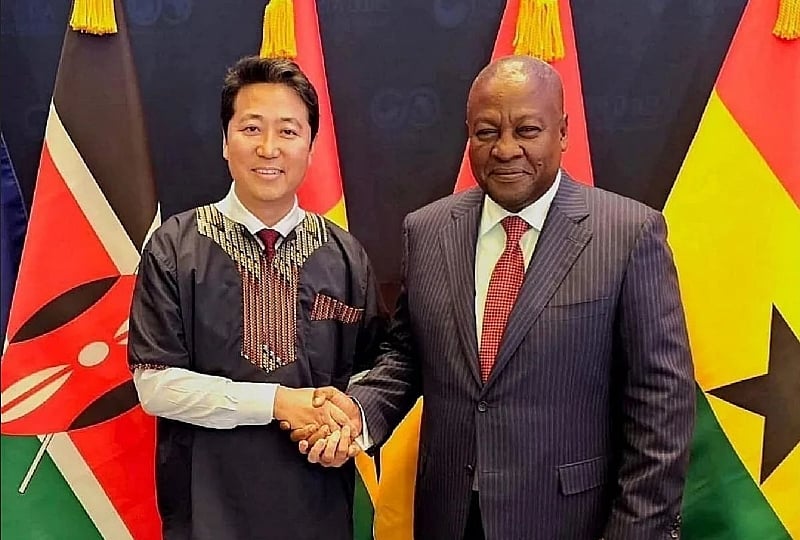President John Mahama’s decision to appoint Kojo Choi as Ghana’s ambassador to South Korea is a masterstroke in strategic diplomacy and a profound affirmation of what citizenship, merit, and national service should mean in a modern, democratic state. Yet, as has become all too common in Ghana’s political landscape, the appointment has sparked a storm of opposition—largely grounded in the politics of origin, colour, and difference rather than reason, merit, or law.
Kojo Choi, though born in South Korea, has lived in Ghana since the age of 14. He was educated at the University of Ghana and has spent more than two decades building an extraordinary career in Ghana’s financial technology sector. As the founder and CEO of one of Ghana’s most successful fintech platforms, he has contributed immensely to the country’s digital economy, championing innovation and demonstrating an unwavering commitment to the national interest. What more should any nation ask of a citizen?
Opposition to his appointment seems to rest on the outdated and dangerous idea that one must be born in a country to serve it. This logic is not only flawed, but deeply un-Ghanaian. Our history, culture, and constitution all point toward inclusion, equality, and the recognition of contribution over ancestry. Indeed, Kojo Choi’s case is not unique. Across the world—and even on our own continent—citizens by naturalisation or descent have risen to the highest levels of public service and national representation.
Consider Madeleine Albright, born in Czechoslovakia, who rose to become the first female Secretary of State of the United States. Or Arnold Schwarzenegger, an Austrian by birth, who served two terms as Governor of California. In France, Manuel Valls, born in Spain, became Prime Minister, while in Canada, Michaëlle Jean, originally from Haiti, served as Governor General. These individuals were not judged by their place of birth, but by their commitment, competence, and character. The same standard should apply to Kojo Choi.
Even within Africa, we are not strangers to such progress. In Kenya, President Jomo Kenyatta appointed Charles Njonjo, whose ancestry was contested by critics, to key positions of national importance. In South Africa, a country grappling with a complex racial and migration history, several cabinet ministers and parliamentarians have hailed from foreign roots but became symbols of integration and service. Ghana, as a beacon of democracy in the region, must not fall behind in embracing the full meaning of citizenship.
To reject Kojo Choi based on his Korean heritage is not only unjust—it is a betrayal of Ghana’s democratic promise. He is a Ghanaian by law, by contribution, and by conviction. He has created jobs, paid taxes, built institutions, and promoted Ghanaian culture on international platforms. If citizenship means anything, it must include the right to serve one’s country at the highest level when one is qualified and committed to doing so.
Politically, this appointment is astute. South Korea is a global leader in technology, innovation, and industrialisation—areas Ghana is eager to expand into. Who better to represent Ghana in Seoul than a man who is fluent in both Korean and Ghanaian realities, and who has built a career at the intersection of technology and global finance? Kojo Choi is not a liability—he is an asset. His appointment is a signal to the world that Ghana is ready to lead with brains, not birth certificates.
It is time we moved past the politics of exclusion and began to value the rich diversity of our citizenry. Ghana belongs to all who call it home, contribute to its development, and are willing to serve it. Kojo Choi’s appointment should be celebrated, not condemned. To attack him is to attack the very principles of fairness, meritocracy, and inclusive progress upon which Ghana’s future depends.
If we are serious about building a Ghana that thrives in the modern world, then we must embrace the kind of bold, unifying choices this appointment represents. In Kojo Choi, Ghana has not only gained a competent ambassador—it has sent a clear message that every Ghanaian, no matter where they began, has a rightful place in shaping the nation’s destiny.


